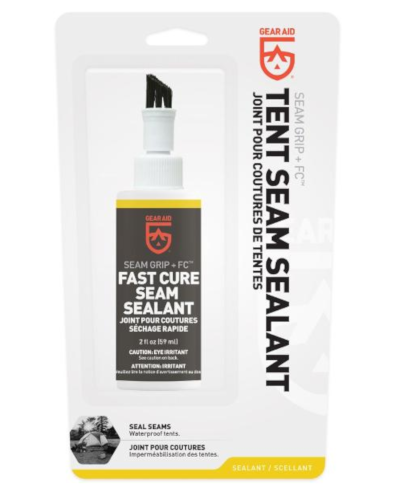After a stressful week at work, it’s finally time to take a break from reality by breathing in the fresh camping air. You start to pack your gear: the food, the clothes, the sleeping bag – hmmm – what else to grab?
Oh yeah, the tent. But, as soon as you get within noseshot of the shelter, your nostrils are stung by an odor!
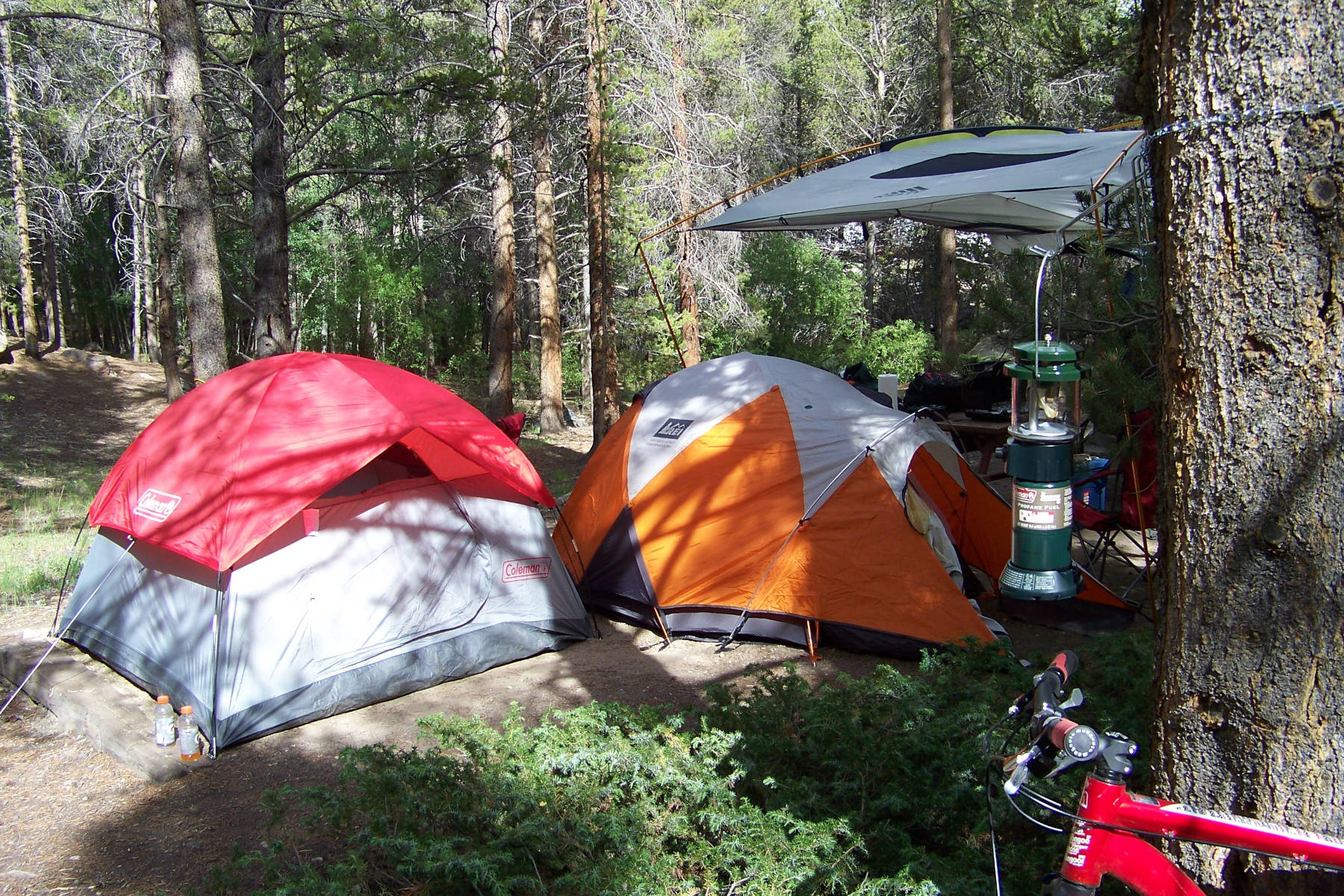
While your tent may appear clean, some unpleasant odors have made their home within the fibers of the fabric. Don’t make a stink, though. I’ll teach you how to clean a tent that smells.
How to Clean a Camping Tent
There are several techniques to disinfect and deodorize your camping shelter. Here I’ve listed some common ones by order of efficiency. Usually, you only need one or two techniques, but feel free to go through all the steps if you want your tent to smell extra fresh.
Pro Camper’s Tip
Before using these treatments check the manufacturer’s recommendations – usually listed in the manual – as it may damage your tent and/or void the warranty. Mesh panels on tents and washing machines DO NOT mix, no matter what the manufacturer says.
1. Let Your Tent Dry and Air Out The Odors
The best way to air out a tent is by hanging it in a well-ventilated area BEFORE you break out the sponges and soap. I use a clothesline, but if you don’t have one, spread the fabric over the backs of four chairs or something similar. This allows the air to move freely around the shelter.
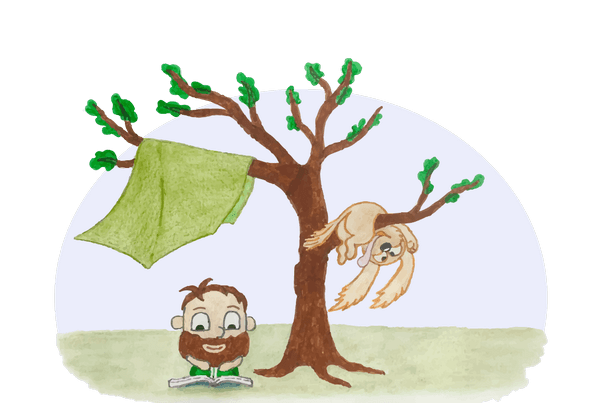
Ok, Andrew that was easy enough but how long should you air out a tent? Ensure all the forest debris is out from the tent and let it sit for 2-3 days. Many times, the odor will blow away in the breeze.
If you’ve just washed your tent, use this method to dry it off completely. When you think it’s dry and ready to go, wait one more day. Moisture build-up in the tent can lead to mildew, and then you’ll have to repeat the process all over again.
2. Quick Scrub to Clean Dirt and Grime
Pitch the tent – trust me, it’s a lot easier to clean this way. Use cold-water and gentle, unscented dish soap to scrub any dirty surfaces with a non-abrasive sponge.
Once you have cleaned the fabric, break down the shelter and leave any pole supports, stakes, and accessories to the side. Let your tent dry before storing it! (See #1 on this list.)
Pro Camper’s Tip
Always use unscented products when cleaning your smelly tent as perfumes attract bugs and larger unwelcome visitors in the wild.
3. How to Clean a Tent with Mold
If your tent has mold don’t despair. To clean a tent with mold fill up a bathtub or kiddie pool – I prefer the latter to keep the stink outside my house – with warm water and unscented soap. Unzip all the tent’s doors, pockets, etc. and soak it in the pool for ten minutes. Then drain the dirty water.
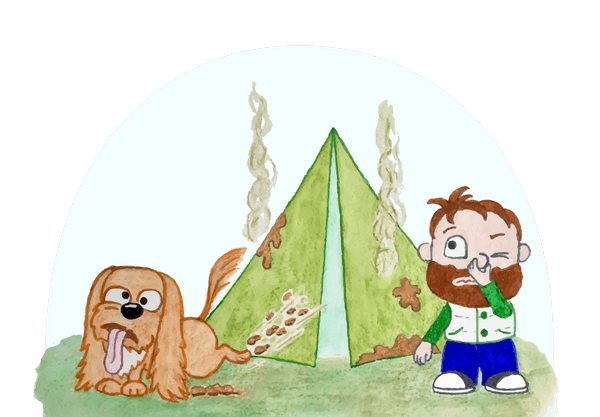
To rinse, fill the tub back up with clean water and drain again. Repeat the process until all soap residue is gone. Let your tent dry thoroughly before storing it! (See #1 on this list.)
Pro Camper’s Tip
Some campers have had success using a 2:1 mixture of vinegar and water to clean your tent of mildew or try lemon juice and water. Again, be wary of your manufacturer’s instructions if you decide to go this route.
HelloTrail® is reader-supported. We may earn a commission, at no additional cost to you, on purchases made from our expert chosen links.
4. Use Mirazyme Tent Cleaner
Besides handwashing, you can order a specialized enzyme cleaner. Soap – or your homemade vinegar mixture – may not always kill the mold and mildew spores that lie dormant in your tent.
A popular product in the camping community is Gear Aid – formerly Mirazyme – Odor Eliminator. This cleaner works to kill odor-causing bacteria, mold, mildew, and algae using a combination of enzymes and microbes.
I have used Gear Aid before, and while I was skeptical of the chemicals eating through my tent’s fabric, it worked like a charm. Also, it’s biodegradable and environmentally friendly. Although you should wear proper gloves while handling.
To dilute the concentrated cleaning solution, add half an ounce of the enzyme cleaner for every 20-gallons of water.
Pro Camper’s Tip
Besides tents, you can freshen up your camping clothes or active wear with an enzyme cleaner. Especially ones that are too fragile for the washing machine.
Post-Clean Treatments
Once you’ve finished removing that stinky tent musk, you will probably stuff it in the closet until the next time you venture into the outdoors. Instead of calling it quits, consider a few more techniques post-clean to increase the life expectancy and quality of your shelter.
Seam Sealing
Seam sealing a tent is more of an art than a science, but it goes a long way in making sure your camping tent is water tight. Basically, you use a spray can or brush – depending on your sealant and cover every sewing stitch in the tent.
Pro Camper’s Tip
It’s important to note that seam sealing products can be specific to types of fabric, so consult the manufacturer before applying.
Waterproof/UV Protection
Along with the seams, you might want to waterproof your entire tent and rainfly. I prefer to use Nikwax Tent and Gear Solar Proof because it is inexpensive and easy to get. Not only will it coat the tent in a water-resistant layer, but it will also impede UV light from damaging the fabric.
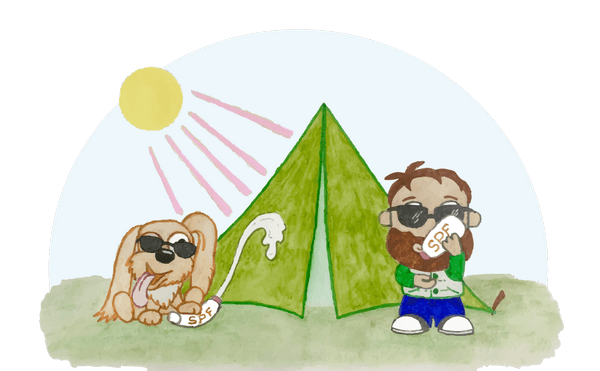
Rare Bug Treatment: Permethrin
I hate bugs in my shelter, which is why I always, always, always treat my tent with Permethrin after I clean it. When applied to any tent fabric or clothing – not recommended for underwear or socks – this chemical repels any and all insect pests.
While the application only lasts six weeks, it can be a lifesaver if you are planning another trip soon. If you choose to bug bomb your shelter, read the directions and always wear the proper protection.
What’s Causing the Stink?
Now that we know how to clean a tent, let’s look at what may be causing the issue in the first place…
Dirt and Grime
Most of the time, dirt and grime are visible. While these contaminants may not be the primary source of your tent’s odor, it’s important to remove them to ensure the material doesn’t wear.
Mold and Mildew
These two fungi can be a serious issue if not dealt with in a reasonable timeframe. Tents containing these contaminants typically smell musty and stale.
I doubt you want to dive into the science behind these smelly organisms – if you do, they are called Microbial Volatile Organic Compounds. But you should know that the spores from the fungi can spread into your home and cause harmful side effects if not dealt with.
Can you Febreeze a Tent?
Yes, you can use Febreeze on a tent or other fabric deodorizers. It will help eliminate smells but you still should air out and wash your tent after a camping trip.
How often should I waterproof my tent?
Depending on how often you go camping you should waterproof your tent every 2 years. More frequent campers may want to reapply waterproofing solutions like Nikwax annually. And every camper should inspect their tents before each trip to ensure all the seams are still sealed. The last thing you want is to wake up to rain drops sneaking through your tent!
Wrapping Cleaning It Up…
Cleaning your stinky tent can be a hassle, but it’s essential if you want to increase the longevity of your shelter.
If airing it out doesn’t work, apply the hand wash method and perhaps give it a nice soak in an enzyme bath. Once it’s all dry, take the opportunity to seam seal, waterproof, and bug bomb your tent. Instead of raising a stink, get rid of it!

